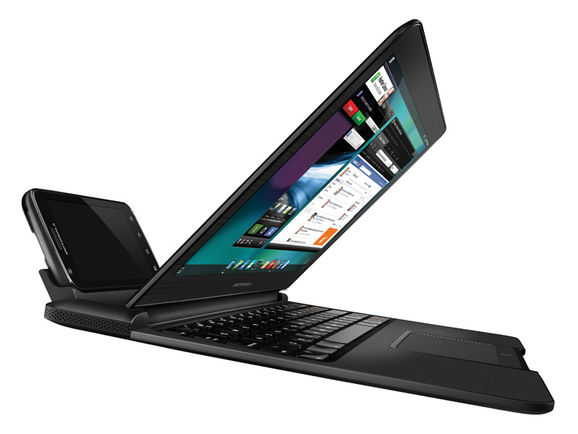“Intel has the wrong business model… People in the mobile phone architecture don’t buy microprocessors, so if you sell microprocessors, you have the wrong model. They license them… it’s not Intel versus ARM, it’s Intel versus every single semiconductor company in the world.”
Two years ago, an article on techradar predicts how smartphone and tablets are going to takeover market share from traditional PCs and laptops, and it is not the only commentary on the future of laptops, smartphones and tablets. “For the first full year since 2001, personal computer sales are projected to decline in 2012”, said on gigaom in 2012, “The PC certainly isn’t dead, but it is dying a slow painful death.”
Why can’t intel, as well as any other giants in desktop market, step into the smartphone market?
In fact they tried, Windows Phone and few intel-powered smartphone such as Lenovo would be good examples for that. However, apparently they are not gaining market share as considerably as other smartphone giants such as Samsung and Apple, which have recently shifted from Laptops to mainly smartphone production.
Throughout Porter’s Five Forces Analysis, by looking at the smartphone industry as a whole, there would be fellowing characteristics:
- Threat of New Entrant: since we are looking at the smartphone market as a whole, there would not be much threat from new entrant since smartphones have already defined themselves by being “smart” and portable.
- Threat of Substitute Product or Services: there are a few, such as tablet PCs, but not that many. In addition, there are trends that can prove the merge of tablets and smartphones.
- Bargaining Power of Suppliers: would not be so important since there are still many manufacturers of semiconductors that are capable of producing those SOCs (System on Chips).
- Bargaining Power of Customers: since the growth of smartphone sales are considerably high, there are more buyer power because consumers can easily switch between brands that have similar models and functions (except for Apple), which help stabilize the price of the overall market as well.
- Intensity of Competitive Rivalry: there would be a lot of competition within the market, since there are millions of brands targeting at different consumer segments, as well as different operating system. Hence, large competition within the market help stabilize the pricing of product as well.
Since the smartphone market is full of internal competition and many options for chip manufacturing. Intel, as the giant manufacturer of PC central chips and SSDs for ultrabooks probably as the wrong business model in the smartphone market. Not many brands in this market would rely much on the intel microprocessor, and it is definitely not easy for a new operating system, such as Microsoft’s Windows Phone, to step into the market as well.
But why is smartphones taking over the traditional laptop industry?
As a consumer, it is clear that everyone wants to own a portable device that can easily fit into your pocket, but at the same time being able to do the basic but important daily tasks such as making schedules, internet surfing, reading, and listening to music. Laptops, on the other hand, are very important for those professions who seek for portable but powerful working stations. But by how much market share of the total laptop and smartphone market are those “professions” taking, not mentioning those of whom that really prefer desktop way more than laptops? Hence it is true that the traditional laptop industry are facing the situation of being squeezed by two ends on the scale. On one hand would be the threat from the rapidly growth of smartphones, since they are getting “smarter” with a reasonable pricing. On the other hand, they are also facing the pressure from desktops which are much powerful and support much more customization than laptop does.
Where are we heading, smartphones? I believe there would eventually be one day that there would be only one device in your hand that is easy to carry, has all the functions you need everyday, as well as capable of doing professional work. And that, would be the future of smartphones, tablets, and laptops.
References:
http://www.techradar.com/news/mobile-computing/how-smartphones-and-tablets-are-taking-over-942724
http://tech.ca.msn.com/how-to/article.aspx?cp-documentid=24513184
